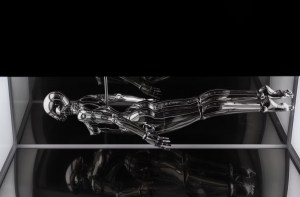AI may seem like a new chapter, but it magnifies an old concern: are we losing our autonomy, our memory, our humanity? From Plato to Voltaire, thinkers have warned that technology is never neutral. It doesn’t just extend our abilities — it reshapes who we are and how we live together.
At TrendsActive, this question of reshaping is exactly what makes AI so compelling. Recently, we came across the book Man and Machine: How Steam, Electricity, and the Smartphone Undermine Us by Roderick Nieuwenhuis. In it, he explores how machines — from the steam engine to the smartphone — change not only what we do, but how we imagine ourselves.
One insight in particular stayed with us. Enlightenment thinkers like Voltaire didn’t simply welcome the machine as progress. They saw its utility, yes — but warned against letting it dictate the model for human life. The machine runs smoothly, efficiently, tirelessly. But we are not machines.
The machine should remind us of our limits — that we get tired, that we are fallible. We shouldn’t follow its rhythm instead of our own. Hours lost in the frictionless scroll of social media show just how easily that happens.
We risk forgetting something essential: that human meaning often lies in resistance. We grow through challenge, not ease. Struggle forces reflection, builds character, and deepens understanding. It is in the slowness of learning. In the awkwardness of a real conversation. In the rough, uncertain process of creating something. These imperfect efforts contrast sharply with the effortlessness with which AI can get things done for us.
In losing friction, we risk losing growth. When machines remove the bumps in the road, they also smooth out what makes us human.
Listen to the interview Nieuwenhuis gave about this topic (in Dutch)

Author
Kim Pillen
Share the signal.











